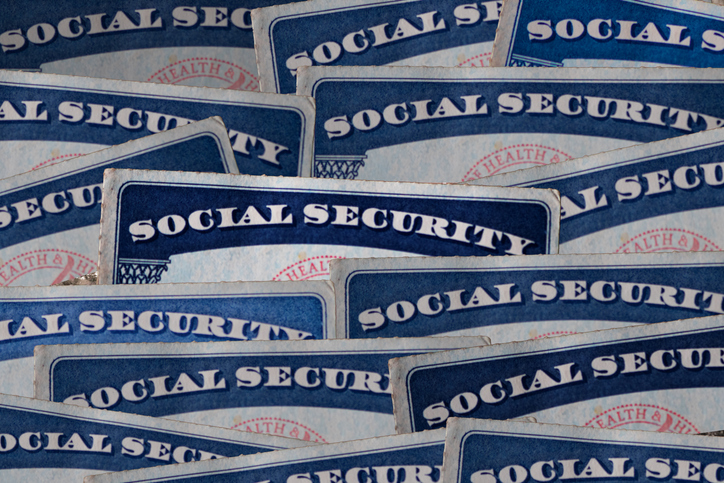Applying for Social Security Disability Benefits feels like a daunting process, especially when you’re already dealing with the aftermath of an accident or injury. Many people rely on these benefits to offset lost wages and manage ongoing medical expenses. But what happens when your application is denied? You’ve done everything you thought was right, yet the letter in your mailbox says otherwise.
Denials happen more often than most applicants expect, and the reasons aren't always clear. Understanding why your claim may have been denied is essential to moving forward and getting the support you need.
Common Reasons for Social Security Benefit Denials
The Social Security Administration (SSA) denies claims for various reasons, and knowing what these are can help you avoid common pitfalls. If your benefits were denied, it’s likely due to one of the following factors:
1. Incomplete or Incorrect Applications
The SSA requires a lot of information for your claim to be processed. Missing documents, incomplete forms, or even small clerical errors can result in a denial. For example:
- Forgetting to sign your application.
- Failing to include important contact details for your doctors.
- Overlooking details about your work history.
Without all the necessary data, the SSA might determine there isn’t enough information to approve your case.
What You Can Do: Double-check your application and all supporting documents before submission. If you’re working through an appeal, consider having an attorney or advocate review your paperwork to ensure everything is in order.
2. Lack of Medical Evidence
One of the key requirements for disability benefits is proving that your injury or condition prevents you from working. This proof often comes in medical records, test results, and statements from healthcare providers. Unfortunately, the SSA may reject your claim if you didn’t provide enough medical evidence or included vague documentation.
Example: If you suffered severe injuries in a car accident but only submitted general notes from a primary care visit, the SSA might not see enough proof of a long-term disability.
What You Can Do: Work with your doctors to gather detailed medical records that outline your diagnosis, treatment plans, test results, and how your condition limits your ability to work. Supporting letters from specialists can further strengthen your case.
3. Failure to Meet the SSA’s Definition of Disability
The SSA has strict criteria for what qualifies as a “disability.” Even if your condition is serious, it must prevent you from doing any substantial work for at least 12 months (or result in death). Temporary conditions or mild impairments may not meet their standard.
What You Can Do: If your condition worsens or becomes a long-term issue, request updated evaluations from your doctors. During an appeal, an attorney can also help outline how your condition fits the SSA’s definition.
4. Missed Deadlines
Timing is critical when applying for benefits or appealing a denial. If you miss the deadline for submitting paperwork or filing an appeal, the SSA will dismiss your claim, no matter how valid your case is.
What You Can Do: Keep track of dates and deadlines. The SSA typically gives 60 days to file an appeal after a denial. Acting quickly can show that you’re serious about your claim and prevent unnecessary rejections.
5. Income Levels Above the SSA’s Threshold
Social Security Disability Insurance (SSDI) benefits are intended for those who cannot work due to disability. However, your claim may be denied if the SSA sees evidence that you’re earning more than what’s considered "substantial gainful activity" (SGA) income. For 2023, the SGA limit is $1,470 per month for non-blind individuals, and $2,460 for those who are blind.
What You Can Do: Review your income details carefully. If you attempted to return to work temporarily but found it impossible due to your condition, be sure to document this in your application or appeal.
What Should You Do If You’re Denied?
Receiving a denial letter is disheartening, but it doesn’t mean the end of the road. Many applicants successfully receive benefits after appealing or correcting their mistakes. Here’s how you can move forward:
1. Understand Why You Were Denied
Read through the denial notice carefully. It will explain the specific reasons behind the SSA’s decision. This information is critical in determining your next steps.
2. File an Appeal
You have the right to appeal the decision, but you must act quickly. The appeals process includes the following stages:
- Reconsideration: A new review of your application by someone who wasn’t involved in the initial decision.
- Hearing: If the reconsideration is also denied, you can request a hearing before an administrative law judge (ALJ).
- Appeals Council: If the ALJ denies your claim, you can escalate it further to the Appeals Council.
- Federal Court: The last step involves filing a lawsuit in federal district court.
Each level of appeal requires specific evidence and preparation, so having professional help can make a big difference.
3. Seek Help from a Personal Injury Attorney
Navigating the claims process can be overwhelming, especially during recovery from a serious accident. A personal injury attorney experienced in Social Security cases can provide invaluable guidance. They can:
- Help collect and organize medical evidence.
- Meet crucial deadlines.
- Represent you during hearings and appeals.
Hiring an attorney improves your chances of approval, as they’ll know how to present your case effectively and fight for the benefits you deserve.
4. Gather New Evidence
If additional medical diagnoses, treatments, or changes to your condition have occurred since your initial application, include those updates in your appeal. Fresh evidence can strengthen your case and demonstrate your ongoing challenges.
5. Stay Organized and Persistent
Patience and organization are key. The SSA receives thousands of applications, so the process can take time. Keep copies of all communications, documents, and deadlines to stay on top of your claim.
Social Security Disability Attorneys in FL
At Burnetti, P.A., our experienced Social Security Disability attorneys in FL are here to guide you through the process and fight for your benefits. Contact us today at (888) 444-8508 for a free consultation.



.jpg)